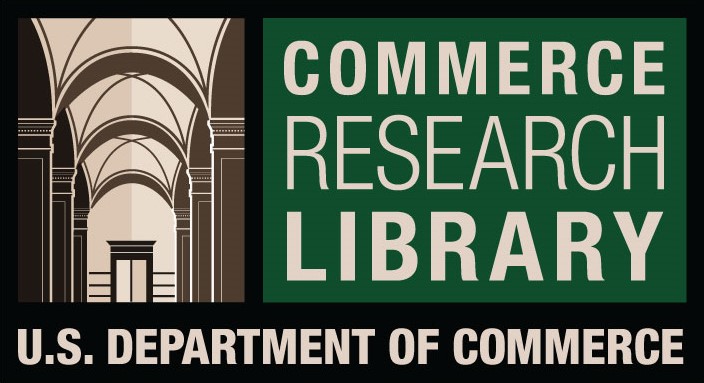POLITICAL BEHAVIOUR PATTERNS OF THE USE OF BEGINNER VOTERS’ SUFFRAGE FOR LEGISLATIVE AND PRESIDENTIAL ELECTIONS IN YOGYAKARTA CITY 2019
DOI:
https://doi.org/10.61841/rgjx2q41Keywords:
views and behaviour,, beginner voters,, suffrage.Abstract
--Democracy is a social interaction between a government that has power because they are elected and individual citizens who choose them based on the values of justice. Inside there is the political behaviour of the government as a political decision-maker, implementation, enforcement, and political behaviour of citizens regarding their interests. The holding of general election 2019 as a realization of democracy in Indonesia, provides an opportunity for every citizen as a voter, including beginner voters to use political rights, namely their suffrage. This paper aimed to reveal the political behaviour of the beginner voters in the city of Yogyakarta, both the position/role, meaning, and use of their suffrage in the presidential and legislative elections in Indonesia in 2019. A qualitative approach was used to understand the phenomena experienced by research subjects. Determination of the subject used purposive sampling technique mainly to detail the specificity of information in a unique context. Subjects consisted of voters who vote for the first time, whether they were still in high school and/or equivalent, and who were not in school. Data collection was done through in-depth interview techniques. The results showed that the beginner voters in the city of Yogyakarta, had the potential to participate in developing the political life of democracy, could play a role in its position in the electoral arena, both as a committee, election witnesses, patterns of behaviour and their views on the campaign, the meaning of election meanings, and patterns the behaviour of deciding choices in presidential and legislative elections in Indonesia in 2019.
Downloads
References
1. Afif, Dafa. 2019. “Political Behavior Patterns Of The Use Of Beginner Voters’ Suffrage”. Personal Communication: 2019, February 07. Yogyakarta City, DIY.
2. Agustina, Susanti. (2018, November 19). KOMPAS: Caleg Belum Banyak Dikenal. Litbang Kompas. p 5.
3. Aisyarahmi Munzir, Atika., Asmawi & Aidinil Zetra. (2019). Beragam Peran Media Sosial dalam Dunia Politik di Indonesia. Journal of Governance and Political Social UMA), No. 7, (2). p 181.
4. Aldi. 2019. “Political Behavior Patterns Of The Use Of Beginner Voters’ Suffrage”. Personal Communication: 2019, June 20. Yogyakarta City, DIY.
5. Arianto, Bambang. (2014). Kampanye Kreatif dalam Kontestasi Presidensial 2014. Jurnal Ilmu Sosial dan Ilmu Politik. Nomor 1, (19). p 20.
6. Bourdieu, Pierre. (1993). The Field of Cultural Production. Essays on Arts and Literature: Columbia University Press.
7. Budi, Pratama Angga. 2019. “Poitical Behavior Patterns Of The Use Of Beginner Voters’ Suffrage”. Personal Communication: 2019, February 06. Yogyakarta City, DIY.
8. Budiardjo, Mirriam. (2005). Dasar2 Ilmu Politik. Jakarta: Gramedia Pustaka Utama. p 161.
9. Diemer, Matthew A., and Cheng-Hsien Li. (2011). Critical Consciousness Development and Political Participation Among. Child Development. No. 6 (82). Pp 1828–1830.
10. Dinas, Elias. (2014). Why Does Apple Fall Far from the Tree? How Early Political Socialization Promts Parent-Child Dissimilarity. British Journal of political Science. Cambridge University Press. (44). Pp 827- 852
11. Enggarani, Fauziah. 2019. “Political Behavior Patterns Of The Use Of Beginner Voters’ Suffrage”. Personal Communication: 2019, May 23. Yogyakarta City, DIY.
12. Fauzan. 2019. “Political Behavior Patterns Of The Use Of Beginner Voters’ Suffrage”. Personal Communication: 2019, June 20. Yogyakarta City, DIY.
13. Freie, John F. (1997). The Effects of Campaign Participationon Political attitudes. Journal Political Behavior. (19). Pp 133-156. Cite as. (Springer Link).
14. Garuda, Era Ruhpinesthi. 2019. “Political Behavior Patterns Of The Use Of Beginner Voters’ Suffrage”. Personal Communication: 2019, May 23. Yogyakarta City, DIY.
15. Hamami, Nurul S. (2019, September 4). Republika: Masyarakat Permisif pada Politik Uang (Sourch: Hasil Survei Pasca Pemilu 2019, P2P LIPI).
16. Hanifah, Nur W. 2019. “Political Behavior Patterns Of The Use Of Beginner Voters’ Suffrage”. Personal Communication: 2019, May 23. Yogyakarta City, DIY.
17. Harker, Richard, Cheelen Mahar, Chris Wilkes (Ed.). --. (Habitus x Modal) + Ranah = Praktik (Sumber terjemahan: An Introduction to the Work of Pierre Bourdieu The Practice Theory. The Macmillan Press Ltd.: London 1990). Yogyakarta: Jala Sutra. Pp 13-123. Helen, Zennis. (2019, Agustus 8). Republika: Membaca Perlawanan Parpol. p 6.
18. Jaramaya, Rizki and Dessi Susilawati. (2017, February 15). Republika: Jangan Salah Memilih. p 17.
19. Jauza. 2019. “Poitical Behavior Patterns Of The Use Of Beginner Voters’ Suffrage”. Personal Communication: 2019, June 24. Yogyakarta City, DIY.
20. KBBI, online: http://kbbi.web.id/kampanye accessed on March 15, 2019 at 10.16 AM.
21. Krisna. (2019). “Political Behavior Patterns Of The Use Of Beginner Voters’ Suffrage”. Personal Communication: 2019, February 04. Yogyakarta City, DIY.
22. Lauglo, Jhon. (2011). Political Socialization in the family and young people’s educational achievement and ambition. British Journal of Sociology of Education. No. 1, (32). Pp 53–74.
23. Mahardika, Gelora, Ahmad, and Sun Fatayati. (2019). Perubahan Perilaku Pemilih (Voting Behaviour) Partai Politik Islam Dalam Sejarah Kofigurasi Politik Indonesia. Tribakti: Jurnal Pemikiran Keislaman. Nomor 2, (30). p. 260.
24. Mursid, Fauziah, and Febrianto Adi Saputro. (2018, Juny 29). Republika: Bukan Karena Gerakan Parpol?. Pp 1-4.
25. Nugroho, Ian. 2019. “Political Behavior Patterns Of The Use Of Beginner Voters’ Suffrage”. Personal Communication: 2019, February 07. Yogyakarta City, DIY.
26. Rahman. 2019. “Political Behavior Patterns Of The Use Of Beginner Voters’ Suffrage”. Personal Communication: 2019, February 04 and 2019, June 20. Yogyakarta City, DIY.
27. Rahmani, Essa. 2019. “Political Behavior Patterns Of The Use Of Beginner Voters’ Suffrage”. Personal Communication: 2019, July 20. Yogyakarta City, DIY.
28. Redlawsk, David P., Andrew J. W. Civettini, Karen M. Emmerson. (2010). The Affective Tipping Point: Do Motivated Reasoners Ever “Get It”?. Political Psychology, No. 4, Vol. 31. Published by Wiley Periodicals, Australia. p 590.
29. Ritzer, George. (2015). Teori Sosiologi Modern. Edisi 7. Jakarta: Prenada Media group. Pp 483-484.
30. Salma. 2019. “Political Behavior Patterns Of The Use Of Beginner Voters’ Suffrage”. Personal Communication: 2019, July 20. Yogyakarta City, DIY.
31. Surbakti, Ramlan. (1992). Memahami Ilmu Politik. Jakarta: PT Gramedia Widiasarana Indonesia. Pp 15- 117.
32. Suwondo, Kutut. (2005). Civil Society di Aras Lokal. Yogyakarta: Pustaka Pelajar dan Salatiga: Pustaka Percik. p 26.
33. Suyahmo. (2015). Demokrasi dan Hak Azasi Manusia. Yogyakarta: Magnum Pustaka Utama. Pp 2-3.
34. Undang-Undang Republik Indonesi Nomor 7 Tahun 2017 Tentang Pemilihan Umum.
35. Vecchione, Michele., Shalom H. Schwartz, Gian Vittorio Caprara, et. al. (2014). Personal values and political activism: A cross-national study. The British Psychological Society. p 18.
36. Widia. 2019. “Political Behavior Patterns Of The Use Of Beginner Voters’ Suffrage”. Personal Communication: 2019, July 20. Yogyakarta City, DIY
37. Zuhro, R. Siti. (2019). Demokrasi Dan Pemilu Presiden 2019. Jurnal Penelitian Politik. No. 1, (16). Pp 75-79.
Downloads
Published
Issue
Section
License

This work is licensed under a Creative Commons Attribution 4.0 International License.
You are free to:
- Share — copy and redistribute the material in any medium or format for any purpose, even commercially.
- Adapt — remix, transform, and build upon the material for any purpose, even commercially.
- The licensor cannot revoke these freedoms as long as you follow the license terms.
Under the following terms:
- Attribution — You must give appropriate credit , provide a link to the license, and indicate if changes were made . You may do so in any reasonable manner, but not in any way that suggests the licensor endorses you or your use.
- No additional restrictions — You may not apply legal terms or technological measures that legally restrict others from doing anything the license permits.
Notices:
You do not have to comply with the license for elements of the material in the public domain or where your use is permitted by an applicable exception or limitation .
No warranties are given. The license may not give you all of the permissions necessary for your intended use. For example, other rights such as publicity, privacy, or moral rights may limit how you use the material.









